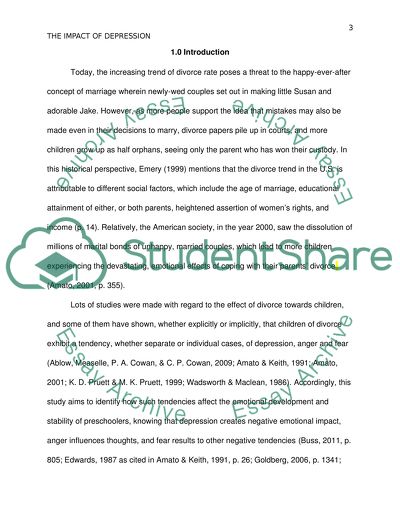Cite this document
(Parental Divorce and the Well-Being of Children Research Paper, n.d.)
Parental Divorce and the Well-Being of Children Research Paper. Retrieved from https://studentshare.org/family-consumer-science/1606621-what-is-the-impact-of-depression-anger-and-fear-on-pre-school-children-of-divorce-in-the-us
Parental Divorce and the Well-Being of Children Research Paper. Retrieved from https://studentshare.org/family-consumer-science/1606621-what-is-the-impact-of-depression-anger-and-fear-on-pre-school-children-of-divorce-in-the-us
(Parental Divorce and the Well-Being of Children Research Paper)
Parental Divorce and the Well-Being of Children Research Paper. https://studentshare.org/family-consumer-science/1606621-what-is-the-impact-of-depression-anger-and-fear-on-pre-school-children-of-divorce-in-the-us.
Parental Divorce and the Well-Being of Children Research Paper. https://studentshare.org/family-consumer-science/1606621-what-is-the-impact-of-depression-anger-and-fear-on-pre-school-children-of-divorce-in-the-us.
“Parental Divorce and the Well-Being of Children Research Paper”, n.d. https://studentshare.org/family-consumer-science/1606621-what-is-the-impact-of-depression-anger-and-fear-on-pre-school-children-of-divorce-in-the-us.


